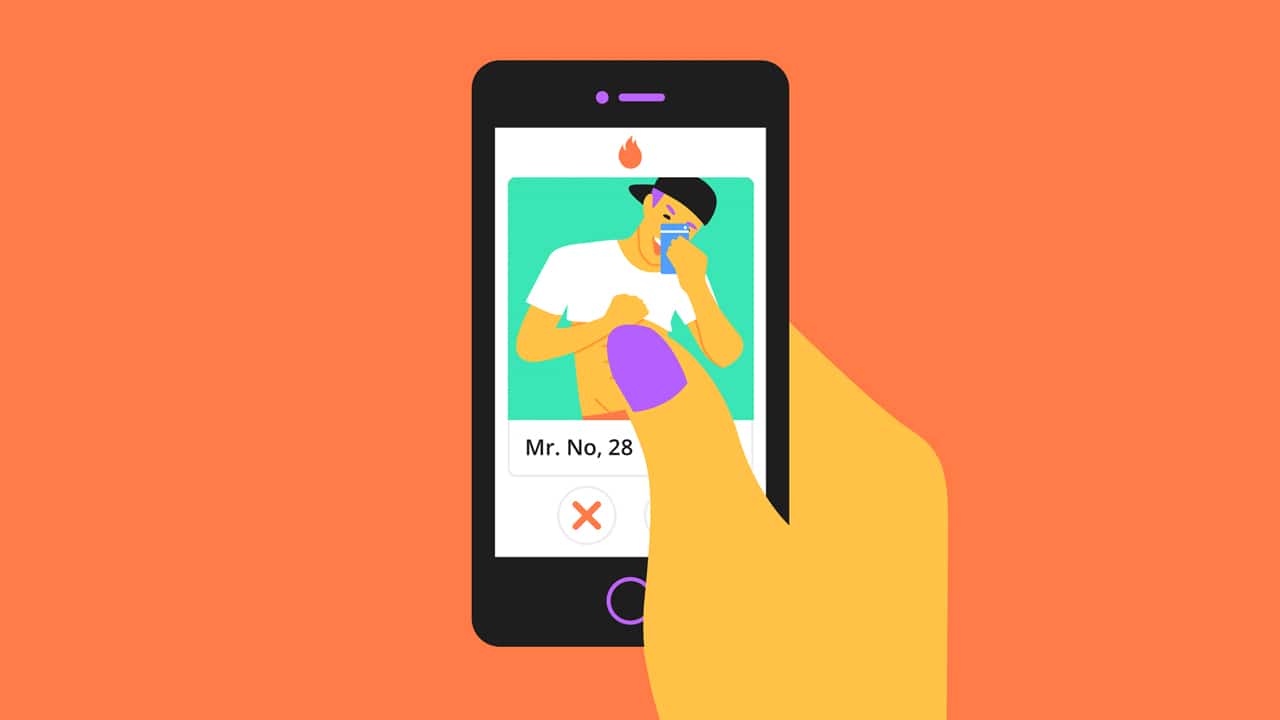Dating
What’s the safest way to have cybersex during quarantine?
Always practice safe sex!

A blazing hot summer isn’t the only reason people are shedding their clothes during the pandemic era. Between separated lovers and thirsty singles in your area, everyone is experiencing a rougher time getting their groove on. As a result, people are running to digital messaging and broadcasting platforms to express their horny sides.
However, as the pre-coronavirus world is wont to tell you, cybersecurity isn’t as safe as one might imagine. Work-from-home employees are quickly learning about privacy risks with their preferred conferencing apps. For example, Zoom, the work-from-home community’s golden child, has repeatedly caused shady privacy hiccups, including Zoombombing (or when unauthorized Zoom users invade other people’s Zoom calls). That said, given how risky office calls already are, how much riskier is it to sext these days?
Sliding into those DMs
Naturally, the simplest form of sexting is the good old-fashioned nude photo. Since the advent of Twitter, DMs have always been home to naughty lewds and unsolicited dick pics. Likewise, the same can be said of Facebook Messenger or Instagram Direct. How safe are these forms of communication for your nudes?
Unfortunately, not very. Though they are private in nature, direct messaging features are hardly the most secure of platforms. This has a lot to do with encryption. Despite Facebook’s and Twitter’s best attempts, completely secure messaging is still a distant hope. Between Facebook, Twitter, and Instagram, only Facebook Messenger offers a secret conversation feature, allowing messages to be end-to-end encrypted. Twitter has tried encryption before, but so far hasn’t rolled out the feature after the test. Instagram, unfortunately, is still working on its own variant.
Meanwhile, the more dedicated messaging services — like WhatsApp and Telegram — already have end-to-end encryption built in. If you’re planning to go old-school sexting, using these apps might be your best bet. Also, if you and your partner both have iPhones, FaceTime uses end-to-end encryption as well.
What does this all mean? Unencrypted messages are prone to unauthorized third parties. You can get hacked. On the other hand, regular encryption protects against malicious hackers. However, the company can still access your data if it needs to. Even if they claim to not touch your data, they still can. True end-to-end encryption protects your data from both hackers and the company, ensuring that only the sender and the receiver can access the data. That said, there are still ways to illegally access encrypted data as was what happened with WhatsApp recently. Ultimately, it’s all about how much risk you are willing to handle.
Booming while Zooming
Likewise, the issue of security pops up again in video conferencing apps. As mentioned above, Zoom is already in hot water for providing less-than-stellar privacy measures. Even now, malicious parties can just as easily access your Zoom calls without your permission. Rumors of the company’s Chinese ties aren’t helping its cause either.
That said, sexy video chats are always going to be a thing. Especially now, there’s no other way to express physical intimacy for distanced lovers than through Zoom, Skype, or Discord. How safe are you when you take your clothes off on these platforms?
This is when it gets tricky. Technically, Zoom, Skype, and Discord all restrict adult content on their respective platforms, based on their terms of service. Under the strictest implementation of the rule, users shouldn’t send nude selfies or have sex shows through these apps.
However, how can these companies expect to enforce this rule? The only feasible way for enforcement is by monitoring accounts directly. Naturally, no one wants that. And companies will never own up to such an invasion of privacy.
At most, some companies claim to use AI and machine learning to catch these calls in the act. According to Zoom’s statement on Rolling Stone, the platform uses “a mix of tools, including machine learning” to help with enforcement. However, when the publication asked for more details regarding the supposed tools, Zoom refused to answer, potentially confirming the measure’s non-existence.
In 2018, Microsoft adjusted its code of conduct to restrict nudity and pornography. In terms of enforcement, the document explicitly refers to the right to go over your submitted content when “investigating alleged violations.” Like Zoom, Microsoft doesn’t have a crystal-clear way to find violators. “Alleged violations” means that the company must rely on other people reporting violators.
NSFW content is allowed in DMs and video chat provided that all parties involved are consenting and of appropriate age. In servers, NSFW content can only be posted in appropriately flagged NSFW channels.
— Discord (@discord) April 11, 2018
Though they have the same problem, Discord has a more open approach to adult content. Like Zoom and Microsoft, Discord doesn’t allow adult content. However, the platform can allow them under certain circumstances. According to a tweet from their official account, “NSFW content is allowed in DMs and video chat provided that all parties involved are consenting and of appropriate age.” Also, Discord allows users to mark communities as NSFW, curbing some of the blow.
How does this go back to the issue of encryption? Because companies will investigate user reports, Zoom, Skype, and Discord will not offer true end-to-end encryption. Though they have standard encryption, the company can still view your content if they need to.
If anything, Discord has more convenience as a platform out of the three mentioned. Regardless, if security is your priority, true end-to-end encryption — such as those offered by WhatsApp and Telegram — is still your best bet.
The human factor
Unfortunately, despite your best efforts, the true risk lies in the people you share nudes with. If you don’t strip responsibly, your sexting partner can easily save your nude selfies, capture screen recordings of you getting it on, or broadcast your livestream elsewhere.
Even if you choose the most secure platform, people can still mess with you. At the very least, make sure you completely trust your partner. And not just the he’s-my-boyfriend type of trust. Make sure that, even if you break up, they won’t betray you at all.
If you’ve successfully found yourself such a partner and decided on a secure platform, don’t be afraid to express your sexuality as much as you want. Your body is your own.


Popular short-stay accommodation Hotel Sogo has revealed its AI-tech concept rooms, showing guests the future of its hotel rooms.
In a video posted by Hotel Sogo on YouTube, the company showcased new services powered by AI technology.
Among them are a self-service kiosk which has a virtual assistant to speed up the check-in process. This kiosk allows guests to choose their room, length of stay, and check-in and check-out times.
Once the transaction has been settled, automated robots will guide the guests to their rooms, instead of porters. These machines are somewhat similar to Dunkin’s robot servers called Number 1 launched a few years back.
The rooms have also replaced keycard slots with scanners. Guests only have to scan the unique QR code provided to them to be able to enter and enjoy their stay.
Inside, the room supports a voice control system, so visitors can turn on the air-conditioning unit, television, and more. Furthermore, there is a wireless charging pod on one of the side tables.
To heighten the ambience, a ceiling projector is included to flash visual effects. To top it all off, even the bathroom has an automated body dryer with silver ion antibacterial treatment.
Hotel Sogo has not yet announced which branches will have such rooms, but it is definitely something couples, families, and groups of friends will look forward to soon.

Even dating apps have been utilizing AI’s capabilities too. Bumble has released a new AI-powered feature called Deception Detector to combat catfishers on the app.
As the name suggests, this feature uses AI to help identify spam, scam, and fake profiles so less users will be victimized. Within the first two months of the Deception Detector’s rollout, reports for such accounts reduced by 45%.
According to research from Bumble, fake profiles and risk of scams are among the top concerns when online dating. Moreover, 46% of women surveyed expressed anxiety over the legitimacy of their online matches on apps.
Thankfully, the Deception Detector has a fast and reliable machine learning-based model to assess the authenticity of profiles. The feature has helped in blocking 95% of spam/scam profiles automatically. Dedicated human support are also on standby to keep the community safe.
This latest release is just part of Bumble’s latest innovations across its products, and aligned with the company’s history of combating misogyny, harassment, and toxicity.
Previously, Bumble introduced Private Detector which also uses AI to blur lewd nude images. Best Bees, an AI algorithm that provides higher a level of curation for members, was also recently released.

An essential part of the Tinder experience is getting your friends’ usually constructive critique of potential matches. If you’re someone who seeks a friend’s approval before swiping right, the dating service is making the experience official. Tinder users can now ask friends and family for matching suggestions.
Dubbed the Matchmaker, the feature will let a user’s close circle interact with their profiles in a meaningful way. Using the feature will generate a link which users can share with up to 15 different people. They don’t even need a Tinder profile to start recommending. Anyone, even those without Tinder, can participate in a Matchmaker session.
Once created, a session will last 24 hours. Participating matchmakers will go through a series of profiles for the user. As always, they can swipe right on profiles that they think will match well with their friend. After the 24 hours, the original user can review who their friends recommended to them. Recommended profiles will show up with a label. Notably, rejected profiles will still show but without any sort of mark.
To be clear, the Matchmaker feature will not replace the original user. No matter how many profiles a user’s friends recommend, only the user themselves have the final say on whether they swipe right or engage in conversation with the recommended profile.
At its best, the new feature gives users an additional filter when selecting a potential match on the platform. At its quirkiest, it allows family members to vet matches for their single loved one. And, at its worst, it’s still a bit of fun to come up with funny matches for a friend.
The Matchmaker feature is available now in 15 countries around the world.
SEE ALSO: Tinder rolls out a $500-per-month subscription tier
-

 Events2 weeks ago
Events2 weeks agoStellar Blade: PlayStation taps cosplayers to play Eve for game’s launch
-

 Features1 week ago
Features1 week agoFortify your home office or business setup with these devices
-

 Gaming2 weeks ago
Gaming2 weeks agoThe Rogue Prince of Persia looks like an ultra-colorful roguelite
-

 Accessories2 weeks ago
Accessories2 weeks agoLogitech unveils G Pro X 60 gaming keyboard: Price, details
-

 Reviews1 week ago
Reviews1 week agorealme 12+ 5G review: One month later
-

 Gaming2 weeks ago
Gaming2 weeks agoLenovo confirms development of a Legion Go 2
-

 Deals2 weeks ago
Deals2 weeks agoTCL P635 TV: Big savings for TCL’s anniversary
-

 Gaming1 week ago
Gaming1 week agoNew PUMA collection lets you wear PlayStation’s iconic symbols

























